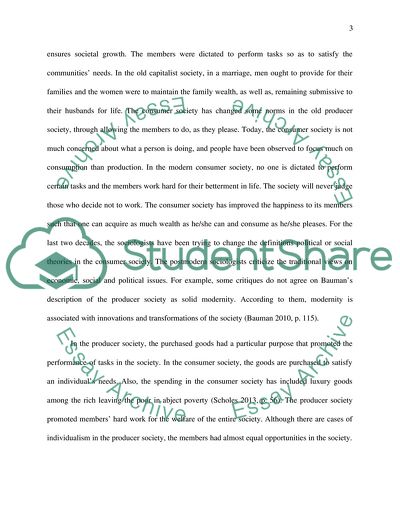Cite this document
(“Compare and contrast the producer and consumer society as outlined by Essay”, n.d.)
Compare and contrast the producer and consumer society as outlined by Essay. Retrieved from https://studentshare.org/sociology/1638089-compare-and-contrast-the-producer-and-consumer-society-as-outlined-by-bauman-and-consider-their-impact-on-personal-and-societal-happiness
Compare and contrast the producer and consumer society as outlined by Essay. Retrieved from https://studentshare.org/sociology/1638089-compare-and-contrast-the-producer-and-consumer-society-as-outlined-by-bauman-and-consider-their-impact-on-personal-and-societal-happiness
(Compare and Contrast the Producer and Consumer Society As Outlined by Essay)
Compare and Contrast the Producer and Consumer Society As Outlined by Essay. https://studentshare.org/sociology/1638089-compare-and-contrast-the-producer-and-consumer-society-as-outlined-by-bauman-and-consider-their-impact-on-personal-and-societal-happiness.
Compare and Contrast the Producer and Consumer Society As Outlined by Essay. https://studentshare.org/sociology/1638089-compare-and-contrast-the-producer-and-consumer-society-as-outlined-by-bauman-and-consider-their-impact-on-personal-and-societal-happiness.
“Compare and Contrast the Producer and Consumer Society As Outlined by Essay”, n.d. https://studentshare.org/sociology/1638089-compare-and-contrast-the-producer-and-consumer-society-as-outlined-by-bauman-and-consider-their-impact-on-personal-and-societal-happiness.


